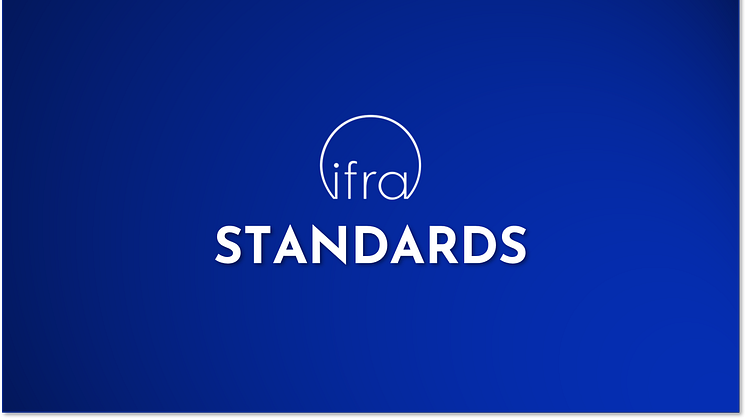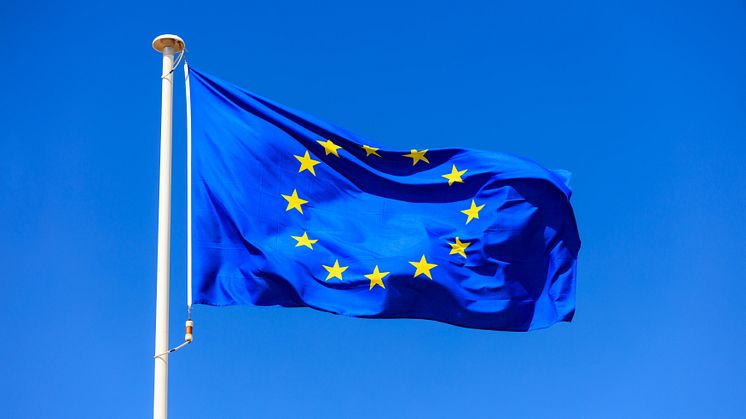
Press release -
Helping people to enjoy fragrance with confidence: IFRA announces revisions to global safe use initiative
Note: a correction to the number of Standards was made post-publication.
The International Fragrance Association (IFRA), the global body representing fragrance ingredient manufacturers and compounders, has today published the latest update to its flagship fragrance safe use program, the IFRA Standards.
The IFRA Standards set maximum use levels on the use of certain fragrances in finished consumer goods products based on scientific research into potential health and environmental effects. The Standards – which also set purity rules or may ban certain ingredients for fragrance applications – are derived from scientific assessments by the Research Institute for Fragrance Materials (RIFM) with independent oversight by the Expert Panel for Fragrance Safety.
The latest update, known formally as the ‘Notification of the 49th Amendment to the IFRA Code of Practice’, represents the most significant change to the Standards in many years.
The updated Standards are derived from a new safety assessment approach, include rules based on overall consumer use of fragranced products, and feature new and revised product categories. The total number of Standards increases by 25, from 191 to 216. There are also changes to 91 existing Standards.
The new Standards for dermal sensitization are based on a new assessment methodology, known as Quantitative Risk Assessment (QRA2), which has been developed through a multi-stakeholder process involving dermatologists, academics, the industry and other stakeholders. The platform for this development was the International Dialogue on the Evaluation of Allergens (IDEA).
The new Standards look at aggregate exposure of fragrance ingredients via different consumer products, using a database of real-life product use and habits that feeds into a statistical model, helping us to understand how people use fragrance products in everyday life and to set rules that ensure they can continue to use them safely.
The IFRA President, Martina Bianchini, said:
“The IFRA Standards is the industry’s flagship program for the safe use of fragrance ingredients. The Standards set rigorous, comprehensive and global rules based on scientific evidence and consumer insights, and are subject to independent oversight.
“We want consumers to continue to enjoy fragranced products with confidence. The IFRA Standards are our contribution to setting an industry-wide global framework and guidance for every manufacturer and compounder to follow. This boosts transparency while ensuring there is space for creativity and innovation.”
Fragrance ingredient manufacturers and compounders around the world will have until 10 February 2021 to comply with the new Standards for new fragrance creations, and until 10 February 2022 for existing creations.
The new Standards were developed over several years and were subject to a lengthy global stakeholder consultation in 2019.
IFRA will continue to offer education, training and implementation support to members, consumer goods companies and other stakeholders to ensure correct application of the Standards.
The updated IFRA Standards are publicly available at ifrafragrance.org. While the Standards are compulsory for IFRA members, non-members are encouraged to follow the Standards as a way of promoting the safe use of fragrance as well as maintaining and enhancing consumer confidence in fragrance.
Related links
Topics
Categories
The International Fragrance Association, founded in 1973, represents the interests of the fragrance industry worldwide. IFRA comprises seven multinational companies, 21 national associations in four global regions representing hundreds of small and medium-sized fragrance ingredient manufacturers, and eight supporting members. Its mission is to promote the safe use of fragrance for everyone’s enjoyment.
Fragrances are a key platform technology used by consumer goods companies – for fine fragrances, personal care products, household care and more.
IFRA’s flagship safe use program, the IFRA Standards, applies safety management measures based on scientific assessment and the evaluations of an independent Expert Panel. The program is at the heart of the IFRA Code of Practice, which applies to all IFRA members globally, including members of IFRA’s 21 national associations. The Code also requires members to abide by local, national and international regulation, and to apply good manufacturing practices.




